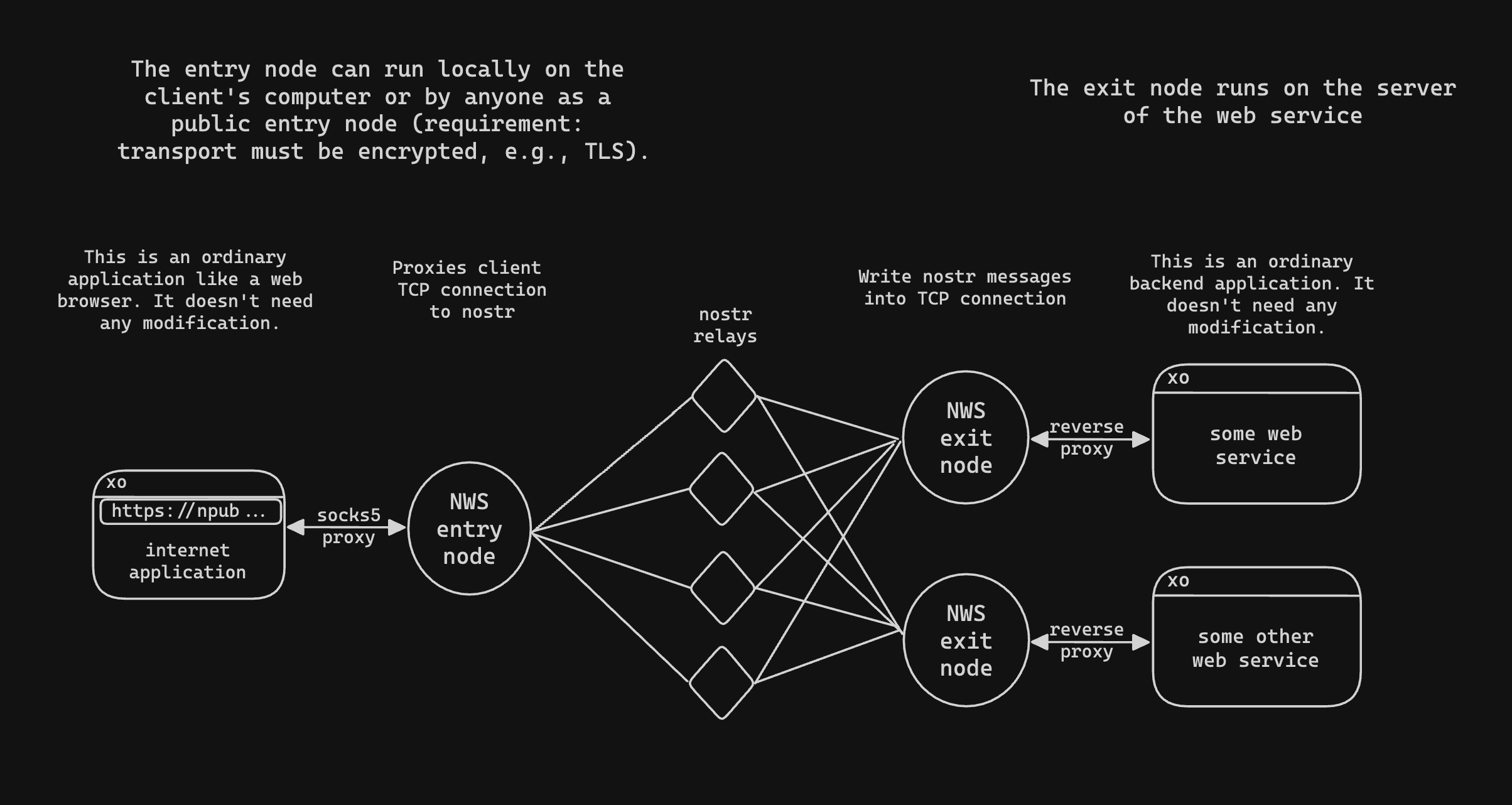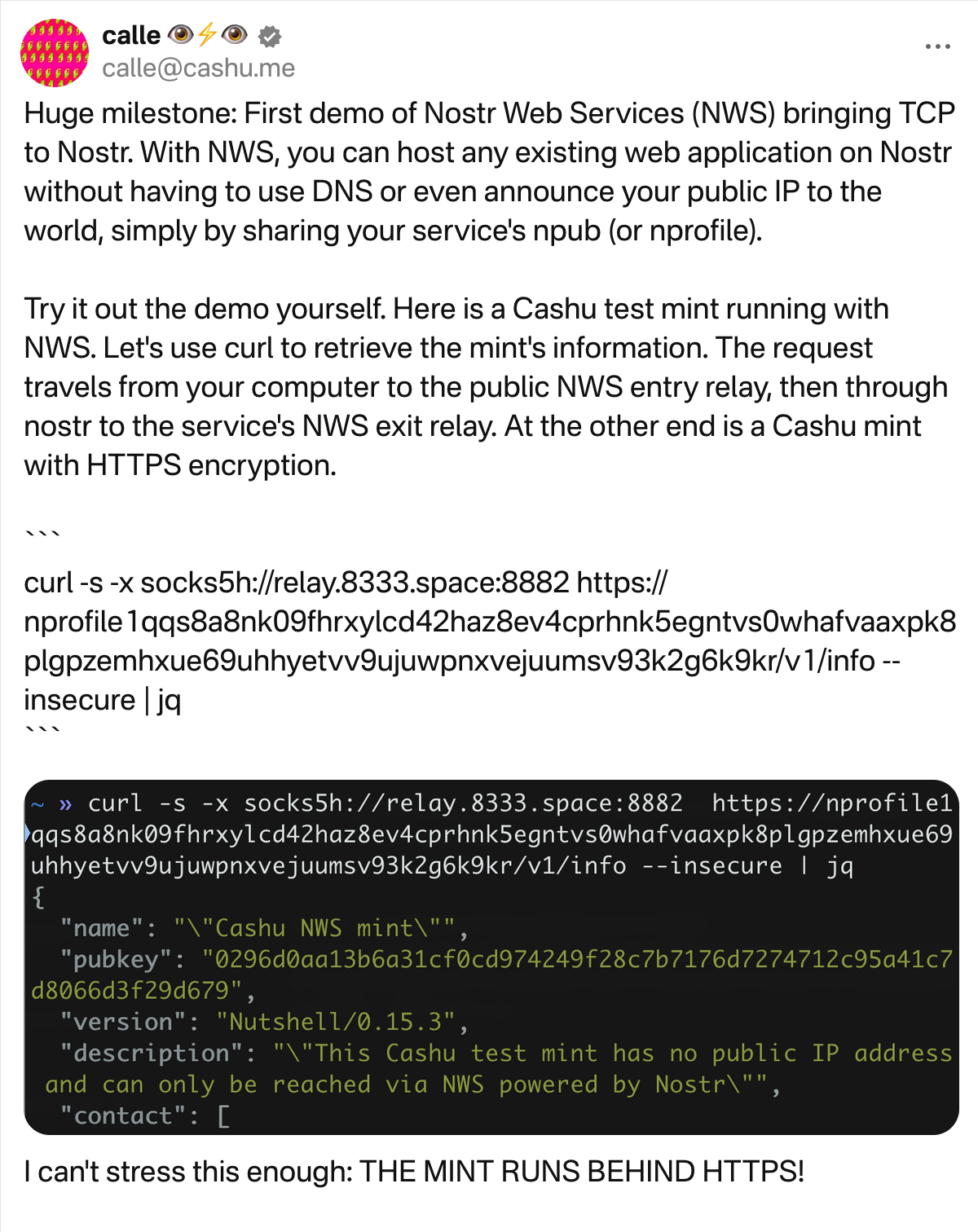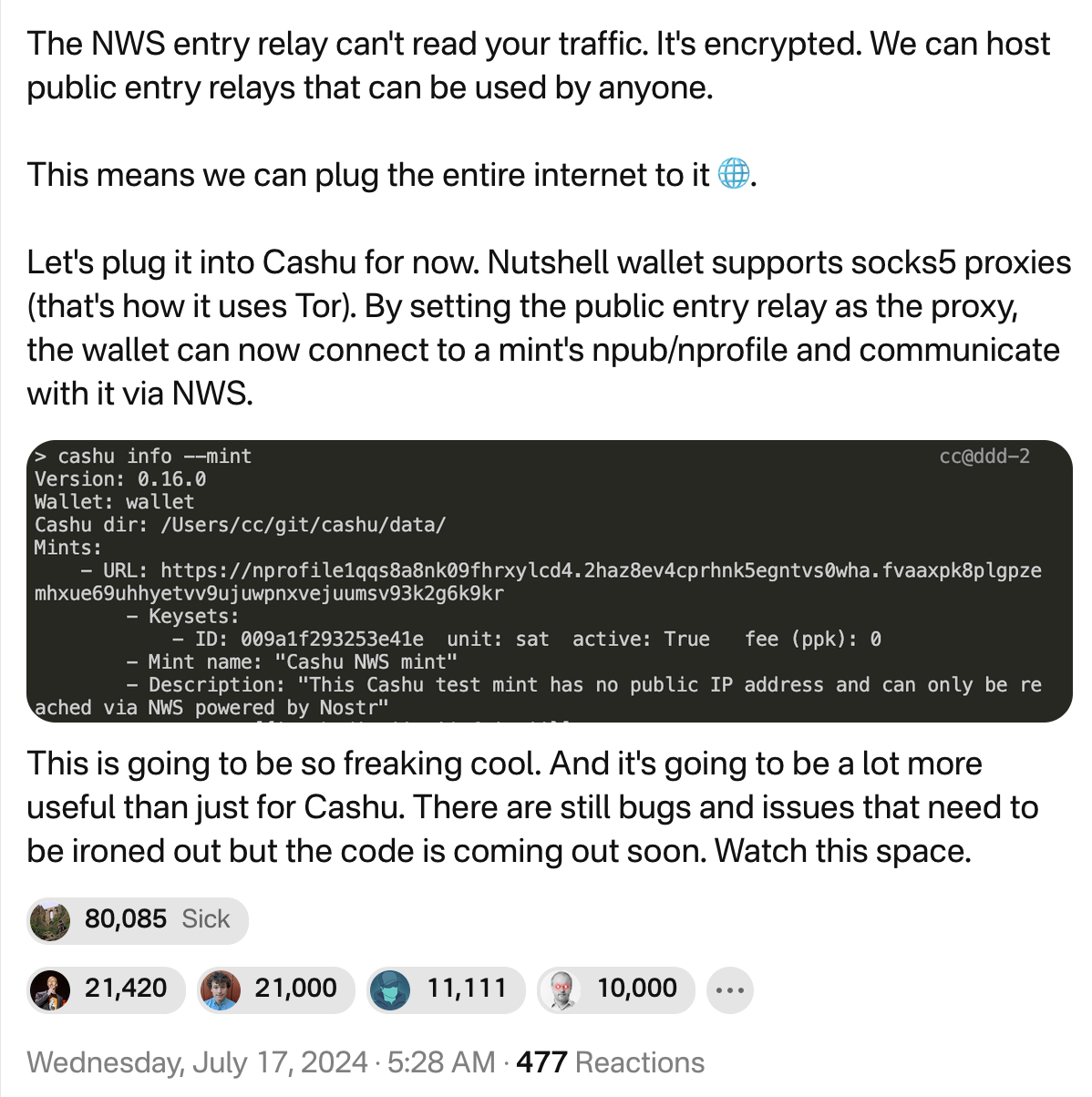

Don't sleep on Nostr.
In January 2023 we wrote about the potential of Nostr as a distributed communications protocol to disrupt and ultimately supplant centralized social media platforms. Since then, we have written more about Nostr as developments have materialized. As it stands today, in the middle of July 2024, it has become abundantly clear that Nostr is much more than a mere replacement for centralized social media platforms. Social media is simply one application that can built on top of Nostr. The tip of the iceberg.
This has been clear to many paying attention to the protocol for some time. However, this is not widely understood by the broader market, which is still highly skeptical of the long-term viability and scalability of Nostr. Last Friday calle, the creator of the Cashu eCash protocol, teased that he had just witnessed an HTTPS connection successfully established via Nostr.
I've just witnessed an https connection successfully established via nostr.
— dr. calle (@callebtc) July 12, 2024
if you know, you know what this would mean
🤯🤯🌐🤯🤯
What this means, from my understanding, is that a developer working on the protocol has discovered a way to natively bring Nostr notes to the HTTPS protocol via a proxy that connects the two using entry and exit nodes (similar to how Tor works). Put another way, you'll be able to access everything you can via a web browser using Nostr with much better privacy. The bridge between Nostr and HTTPS is called Nostr Web Services. calle explains further here:

And here's what it looks like at the network level:

This shows that a communications protocol can do much more than simply enable social media use cases. It can also act as a bridge to other protocols. It is still early days, but the development in this part of the Nostr protocol is extremely encouraging. Nothing is completely fleshed out yet, but if you squint hard enough and also believe that the development pace will remain steady or increase from here you can see that some powerful functionalities are beginning to come to market. For example, calle has already used Nostr Web Services to connect HTTPS with a Cashu mint.



I don't think the profundity of being able to host a web application on Nostr that can connect to HTTPS without a DNS dependency can be overstated. If Nostr Web Services proves to be viable, that function alone would eliminate one of the most worrisome single points of failure on the web. DNS is a highly centralized part of the web stack. Companies who control domain registries can trivially create black lists that can censor particular web properties. Being able to diversify away from DNS and toward open and permissionless Nostr public-private key identity would completely change the game.
As I mentioned earlier, it is still early days and the long-term viability of Nostr Web Services isn't clear (to me), but this development is highly encouraging.
Final thought...
Round trip cross country trips in under 48-hours are exhausting.



